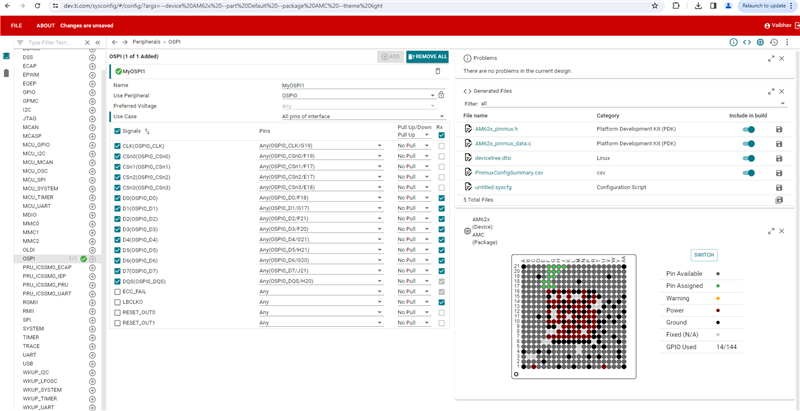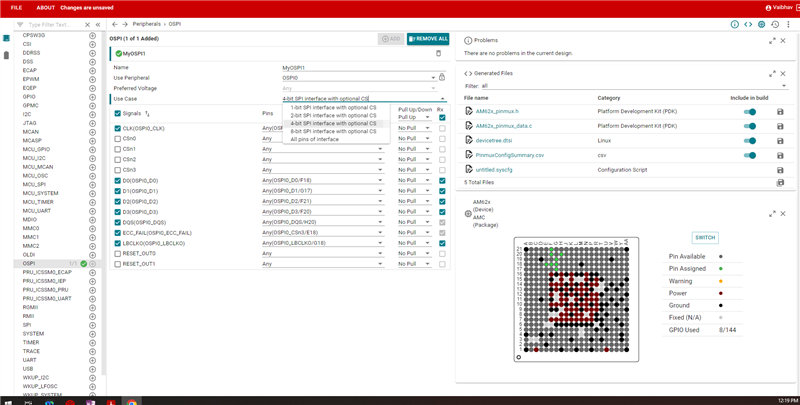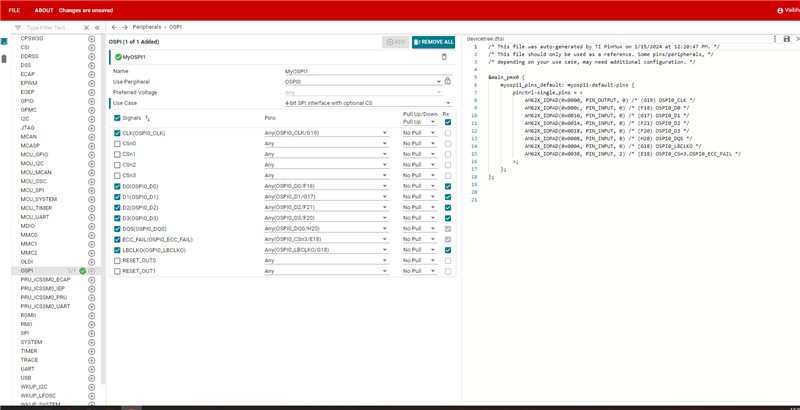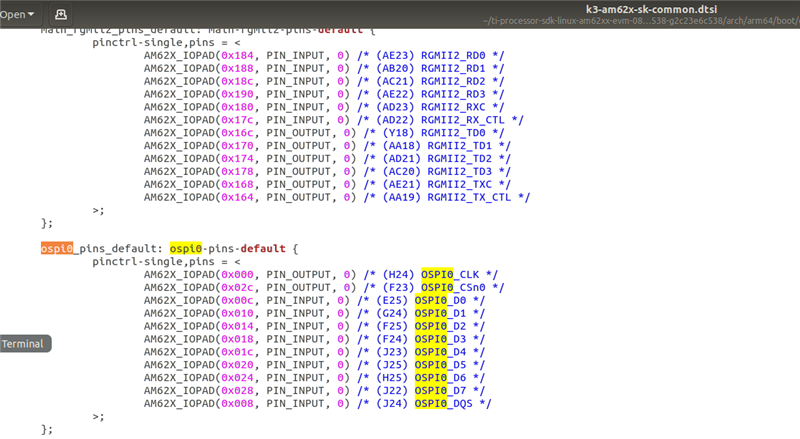Part Number: AM625
Other Parts Discussed in Thread: SYSCONFIG
Dear Team,
In the AM62x SDK [v9.1], is it necessary to modify the file ..arch/arm/dts/k3-am62x-sk-common.dtsi for a custom design of the SoM?
If modification is required, which node should I start with in the dts file?
Thanks and Regards,
Ravikumar





